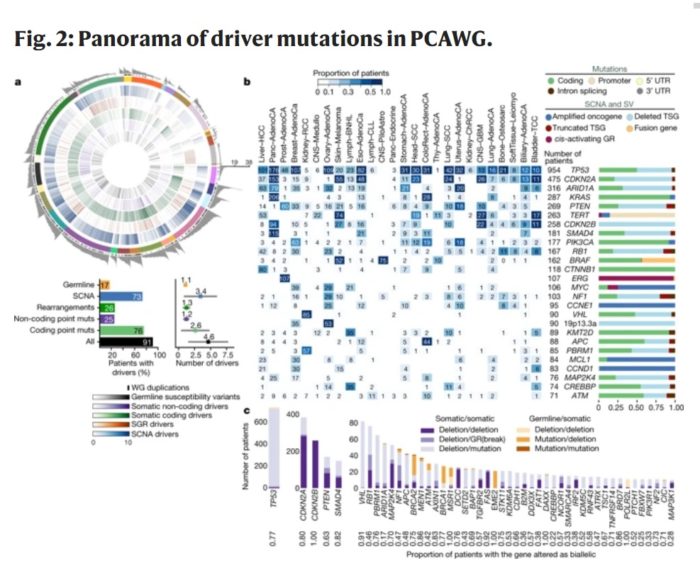Feb
07
2020
 When you think all to yourself (not engaging with others) do you hear an inner voice, do you conjure images, or do you just have abstract feelings? For most people the answer is, yes. Recently a Twitter post has triggered people to consider their inner voice, and whether or not they have one. The post was intriguing to many people mostly because they had not considered that other people may be different in this respect than they are. It was not a variable they thought could differ among people.
When you think all to yourself (not engaging with others) do you hear an inner voice, do you conjure images, or do you just have abstract feelings? For most people the answer is, yes. Recently a Twitter post has triggered people to consider their inner voice, and whether or not they have one. The post was intriguing to many people mostly because they had not considered that other people may be different in this respect than they are. It was not a variable they thought could differ among people.
The episode brings up a few interesting points, the first of which is the core question – how do people think? If you have never considered the question, consider it now. Do you actually “hear” a virtual voice in your head? Do you think mostly in pictures, or in the abstract? Or is the mode of your thought very context dependent – depending on what you are thinking about or what task you are trying to complete.
For me, I think I do everything. If anything I may be biased toward verbal inner monologue, but that may be an artifact of the fact that I write every day and give lots of lectures. I definitely practice lectures and conversations entirely in my head. People who know me well even “catch” me doing this, because I may talk with my hands or throw in the occasional gesture or facial expression while doing so. But I can also be very visual when the task calls for it, bringing to mind detailed images, schematics, or spatial relationships. When I think about abstract concepts, I tend to give them some verbal or visual representation. So I would say, rough estimate, I am 60-40 verbal-visual, but again that may be because of my writing and lecturing.
I have known for a long time that other people (at least those close to me) do not do this nearly as much as I do, and I have also learned over the years of my neurological study and science communication that, generally speaking, there is far more neurodiversity than we naively assume. There are those who essentially have no verbal inner monologue. They are far to the visual end of the spectrum.
Continue Reading »
Feb
06
2020
 More than a thousand scientists working for over a decade in 37 countries have just published the results of their comprehensive analysis of cancer genetics – Pan-cancer analysis of whole genomes. This was a massive effort, facilitated by modern computing allowing for international collaboration. It is a good example of the collaborative nature of science. There are some interesting take-aways from the results, but first let’s review the basics of cancer.
More than a thousand scientists working for over a decade in 37 countries have just published the results of their comprehensive analysis of cancer genetics – Pan-cancer analysis of whole genomes. This was a massive effort, facilitated by modern computing allowing for international collaboration. It is a good example of the collaborative nature of science. There are some interesting take-aways from the results, but first let’s review the basics of cancer.
In healthy tissue there are multiple mechanisms to keep cells from reproducing and growing without limit. Cell proliferation is a carefully regulated process, and when that process goes awry one potential result is cancer. It has already been established for many cancers that they are caused by a combination of genetic mutations, which disable one or more of these regulatory mechanisms. The result are cells that will grow without limit, either in the blood or forming a solid tumor. Cancers can vary in terms of how aggressive they are – how fast do they grow, how much do they invade neighboring tissue, and how likely are they to metastasize (spread to remote areas).
Treating cancer involves removing tumors, and using drugs and radiation to kill rapidly dividing cells. Cancer cells are rapidly dividing, but so are some healthy tissues and this leads to significant side effects. Newer treatments block the formation of new blood cells to feed tumors, and also harness the immune system to attack cancer cells. Despite the fact that cancer is a horrifically complex set of diseases (not one disease), progress in our understanding and treatment of cancer has lead to a steady increase in survival.
The death rate from cancer in the US declined by 29% from 1991 to 2017, including a 2.2% drop from 2016 to 2017, the largest single-year drop ever recorded, according to annual statistics reporting from the American Cancer Society.
It is unlikely that there will ever be a “cure for cancer” but progress will lead to a steady slow improvement in survival, so that fewer and fewer people will actually die from their cancer, as opposed to living long enough to die from something else.
Continue Reading »
Feb
04
2020
 This has to be the worst opinion piece I have read in a major news outlet in a long time. The authors, Elisa Albert and Jennifer Block, leave behind them a killing field of straw men and empty containers of metaphorical “Kool Aid.” Here is the short version – they are defending Gwyneth Paltrow’s Goop and the recent Netflix series Goop Lab with all the tropes of pseudoscience they can muster. They wrap them all up in a narrative of female empowerment, and dismiss out-of-hand all the legitimate criticism of the dangerous advice Goop sells as a conspiracy of the “patriarchy.”
This has to be the worst opinion piece I have read in a major news outlet in a long time. The authors, Elisa Albert and Jennifer Block, leave behind them a killing field of straw men and empty containers of metaphorical “Kool Aid.” Here is the short version – they are defending Gwyneth Paltrow’s Goop and the recent Netflix series Goop Lab with all the tropes of pseudoscience they can muster. They wrap them all up in a narrative of female empowerment, and dismiss out-of-hand all the legitimate criticism of the dangerous advice Goop sells as a conspiracy of the “patriarchy.”
Ironically, and sadly, I would argue that Paltrow, and by extension Albert and Block, are exploiting women, making them more vulnerable, and depriving them of true empowerment – which is knowledge. When you give someone misinformation, you are taking away their ability to have informed consent. This is what con artists do. Alternative medicine is frequently a double-con, in which those who promote it are themselves deceived and are just paying the deception forward.
All the talk about the “patriarchy” is also just another version of a conspiracy theory, in which all legitimate counter arguments and evidence are dismissed as part of the conspiracy (as I am sure some will do with this very blog post). Conspiracy theories work best if they contain a kernel of truth, or if they are built around a legitimate historical grievance, as in this case. All you have to do is wipe away all the nuance, and cherry pick the details that serve your narrative.
Let’s dig in to some of the details of the article. They start with a rather blatant straw man:
The show would surely promote “dangerous pseudoscience,” peddle “snake oil,” and be “undeniably awful for society.”
Six episodes of the show finally dropped late last month, and so far civilization seems to be more or less intact.
Right, so because civilization did not instantly collapse, none of the warnings about the dangers of pseudoscience are valid. But they were just getting started and this was a mere warm up. The next paragraph frames the discussion: Continue Reading »
 When you think all to yourself (not engaging with others) do you hear an inner voice, do you conjure images, or do you just have abstract feelings? For most people the answer is, yes. Recently a Twitter post has triggered people to consider their inner voice, and whether or not they have one. The post was intriguing to many people mostly because they had not considered that other people may be different in this respect than they are. It was not a variable they thought could differ among people.
When you think all to yourself (not engaging with others) do you hear an inner voice, do you conjure images, or do you just have abstract feelings? For most people the answer is, yes. Recently a Twitter post has triggered people to consider their inner voice, and whether or not they have one. The post was intriguing to many people mostly because they had not considered that other people may be different in this respect than they are. It was not a variable they thought could differ among people.
 More than a thousand scientists working for over a decade in 37 countries have just published the results of their comprehensive analysis of cancer genetics –
More than a thousand scientists working for over a decade in 37 countries have just published the results of their comprehensive analysis of cancer genetics –  This has to be the
This has to be the 




